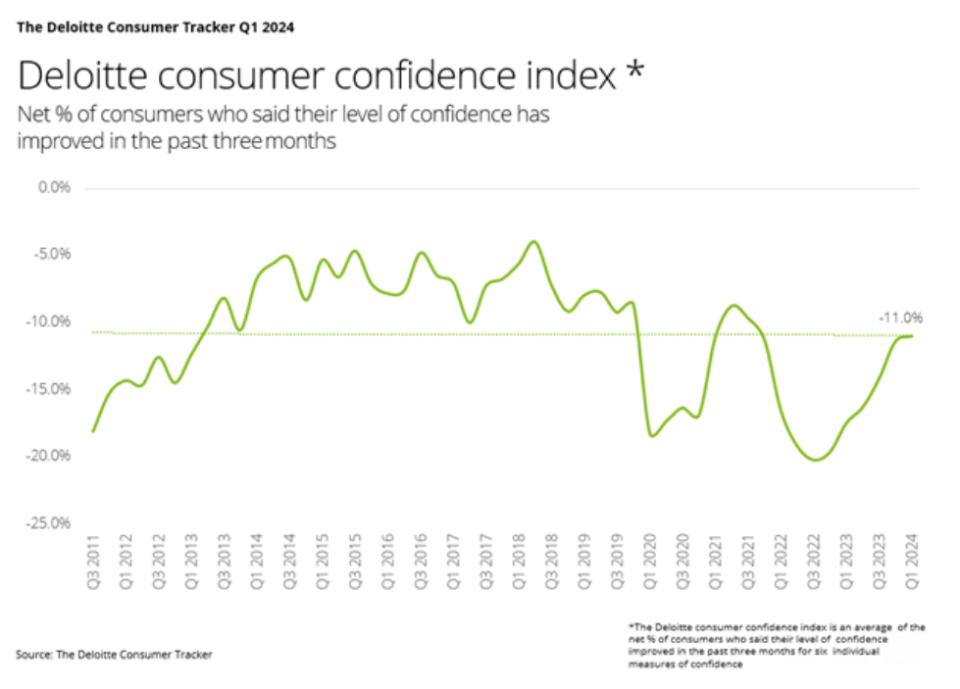Consumer confidence hits highest level in two years as UK ‘turns a corner’

Optimistic young people drove consumer confidence to its highest level in two years, according to a Deloitte survey, as hopes grow that the UK economy has “turned the corner” after a year of stagnation.
Consumer confidence in the first quarter of 2024 was 6.5 percentage points higher compared to the same period last year, with the improvement driven by improving household disposable income.
Young people in particular were the most confident about their personal finances, with the biggest quarterly improvement in sentiment coming among 25-34 year-olds.

Confidence among young people improved eight percentage points during the first quarter and is now 37 percentage points higher than a year ago.
On the downside, however, consumers were less confident in their job security than at the beginning of the year – breaking a run of four consecutive quarters of improvement.
“The bad news for consumers in terms of a softer jobs market has been more than offset by the good news in terms of rising real incomes, falling inflation and lower mortgage rates,” Ian Stewart, chief economist at Deloitte said.
“The revival in consumer confidence speaks to a wider story of an economy that has turned the corner,” he continued.
After falling into a shallow recession in the second half of last year, data suggests the UK economy is slowly gathering some momentum. Figures out last week showed the UK grew 0.2 per cent over the past three months.
With inflation set to continue falling and the Bank of England likely to start cutting interest rates later this year, many economists think the UK economy could improve as the year goes on.
Although the survey noted an improvement in consumer confidence, discretionary spending fell 3.2 percentage points compared to final quarter of 2023, reflecting the “usual post-Christmas cool-off“.
“Spending on non-essential goods and services dropped this quarter, meaning that improving confidence is not yet translating to a significant boost to spending, and cautious optimism is required,” Céline Fenech, consumer insight lead at Deloitte, said.
Nevertheless, discretionary spending was still 5.5 percentage points higher than the same period last year.